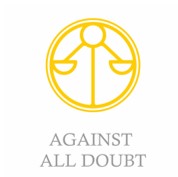Online Life Coach
I’m sure you’ve heard the term before- but what exactly is a online life coach? A coach that structures your thoughts to find your balance in live, manage your stress and supports you to change your life for the better.
Why online?
There are many reasons why I chose to offer my services online.
Here are the thress most important ones:
- In addition to all the daily tasks, I wanted to save you from having to drive to a life coach
- You should feel as comfortable as possible during our sessions.
- Professional and privat travels should not get in the way of our conversations.
To these good reasons I now add Corona. In my work at the childresn’s and youth telephone it becomes clear to me again and again, that just now such an offer is very important.
Who needs an online life coach?
Honestly, I think we all benefit from a life coach. We are confronted with more and more topics in everyday life. It is not easy to cope with all the demands that are placed on us, especially in times when nothing is going as it should.
Going to a life coach means:
- being strong and facing your challenges.
- dealing with yourself to become the best version of you.
What you always wanted to know about online Life Coaching
Well, I just love to travel! Also, if you travel with an open mind there are so many things you can learn from the culture of other countries and you will find, that some of my methods are inspired from my travel.
Or you are interested in going to South America or just want to get some impressions. You can do this on my Travel blog. You fill find information about Bolivia, Chile, Columbia, Peru and other countries I have visited. Unfortunately, I only started writing this blog after having seen already some very nice counties of this part of the world, but I try adding more countries along the way.
In 1973, Freudenberger created the term burn-out in the United States. At that time, he described the burn-out of people in caring or social professions. Today, burn-out is no longer seen only in social professions. According to a study by Statista from 2017 with 649 respondents, it emerges that in the service sector most respondents (14%) estimate the risk of burn-out to be the highest. With 11%, health, care and social services are still the second most affected group. In the area of administration, management and office work, 9% of the respondents still estimate their risk as high.
Here, one can particularly highlight 3 groups of people. What all three groups have in common is that they are people who are highly self-motivated and want to achieve a lot on their own initiative. Only the motives are different.
Group 1: Perfectionists
In this group we find people who are very ambitious and committed to the tasks assigned to them and who want to get it right down to the last dot.
Group 2: Performance-oriented people
This group consists of very determined, dynamic people. They like to exert themselves and often enjoy doing so. However, if there is a lack of recognition from outside or if there are failures, this situation can become very stressful. This group also needs a certain amount of freedom to pursue their goals and needs a high degree of self-responsibility.
Group 3: Selfless people
This group approaches things with a lot of idealism. They are often selfless and responsible. They care about the welfare of others above all else. We usually find them in social professions.
These groups certainly do not describe all unambiguously and there are certainly also affected and endangered who have a mixture of the described characteristics, but should also only give an impression.
Life Balance
There is a lot of talk concerning finding your life balance. There is also more than one live balance model out there, but the one I like is from Nossrat Peseschkian.
Learn more








